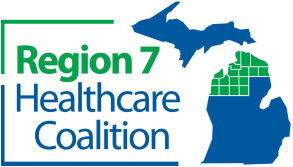|
ASPR's behavioral health response team continues assisting adults, children, and families to cope following the Maui wildfires. In all, ASPR's team of responders has provided behavioral health support at over 4,550 patient encounters in response to the Hawaii wildfires. Find out how ASPR is evolving its disaster behavioral health capabilities as emergencies become more frequent and more severe.
Read the full article in the ASPR Blog November 17, 2023
On Friday, November 17, 2023, the Barb Smith Suicide Resource & Response Network is hosting two Suicide Prevention Training for our First Responders at the Frankenmuth Bavarian Inn Lodge. The titles of the training are: 92 Minutes: a suicide presentation for first responders and Start the Conversation: a suicide presentation for healthcare & behavioral health providers (onecause.com). This is a Michigan Commission on Law Enforcement Standards (MCOLES) Registered Training Opportunity. The guest speakers are Kevin Briggs and Kevin Berthia. An estimated 700,000 people die by suicide worldwide each year and suicide continues to be a leading cause of death. For first responders, this means it is likely they will encounter individuals who experience thoughts of suicide. The additional stresses brought on by the demanding nature of this work contribute to compassion fatigue and burnout. During this training session, attendees will have the opportunity to hear directly from a caregiver and the man he helped through skilled and empathetic communication. This presentation will give attendees both crisis intervention skills to adequately work with persons suffering from thoughts of suicide, as well as specific tools and skills to manage their own self-care post intervention. Click the image below to see the flyer. Click here to register. This is approved for EMS credit. HHS through the Substance Abuse and Mental Health Services Administration (SAMHSA) has awarded nearly $35 million in grant funding this month to bring essential behavioral health services and HIV prevention and care to historically underserved populations. Health equity remains a critical focus of the Biden-Harris Administration, and these funds represent the continued commitment by the administration to address and remedy inequity of care.
Addressing the mental health crisis and beating the opioid epidemic are two core pillars of President Biden’s Unity Agenda for the nation. The grant awards facilitate ongoing efforts throughout the nation in treatment, recovery support and harm reduction, advancing the Biden-Harris Administration’s National Drug Control Strategy and supports the goals of the National HIV AIDS Strategy. Learn more on samhsa.gov. The CDC, ASTHO, the Center for Law and Social Policy (CLASP), and Mental Health America (MHA) recently released a framework for public health leaders with effective strategies to improve mental health and prevent suicide for all people, in every community in the settings where they live, learn, work, and play. Addressing mental health concerns and suicide prevention through a public health approach can prevent other negative outcomes, including chronic diseases, substance use, violence, and adverse childhood experiences. This framework is a step toward a more collective vision in which cross-sector partners are working together to build communities where all people can thrive.
Public Health's Role in Mental Health Promotion and Suicide Prevention HHS announced the formation of a new task force to address critical needs in maternal mental health conditions and co-occurring substance use disorders. The Task Force on Maternal Mental Health, co-chaired by HHS Assistant Secretary for Health Admiral Rachel Levine, M.D. and Assistant Secretary for Mental Health and Substance Use Miriam E. Delphin-Rittmon, Ph.D., will identify, evaluate, and make recommendations to coordinate and improve federal activities related to data and health equity as well as identify and create a strategy to implement best practices around prevention, screening, and diagnosis;evidence-based intervention and treatment; evidence-based community practices; and communications and community engagement. There will be a focus on mental health equity as well as trauma-informed practices.
The Task Force on Maternal Mental Health, co-led HHS' Office on Women’s Health and SAMHSA, will identify, evaluate, and make recommendations to coordinate and improve activities related to addressing maternal mental health conditions and co-occurring substance use disorders. There will be a focus on mental health equity as well as trauma-informed practices. Learn more on womenshealth.gov. |
Archives
July 2024
Categories |
To activate the Region 7
Medical Coordination Center call:
Gaylord Regional
Communication Center
1-989-732-5141
During your call, include the following information:
- Your name and contact number.
- Your agency or hospital.
- The reason for requesting the resource.
- Exact location to where you need the resource delivered.
- Who will accept and sign for the resource.
Medical Coordination Center call:
Gaylord Regional
Communication Center
1-989-732-5141
During your call, include the following information:
- Your name and contact number.
- Your agency or hospital.
- The reason for requesting the resource.
- Exact location to where you need the resource delivered.
- Who will accept and sign for the resource.
Site Map |
Organization |
Copyright © 2014 | 2464 Silver Fox Trail Suite A, Gaylord MI 49735 | 989.748.4975
|
 RSS Feed
RSS Feed
